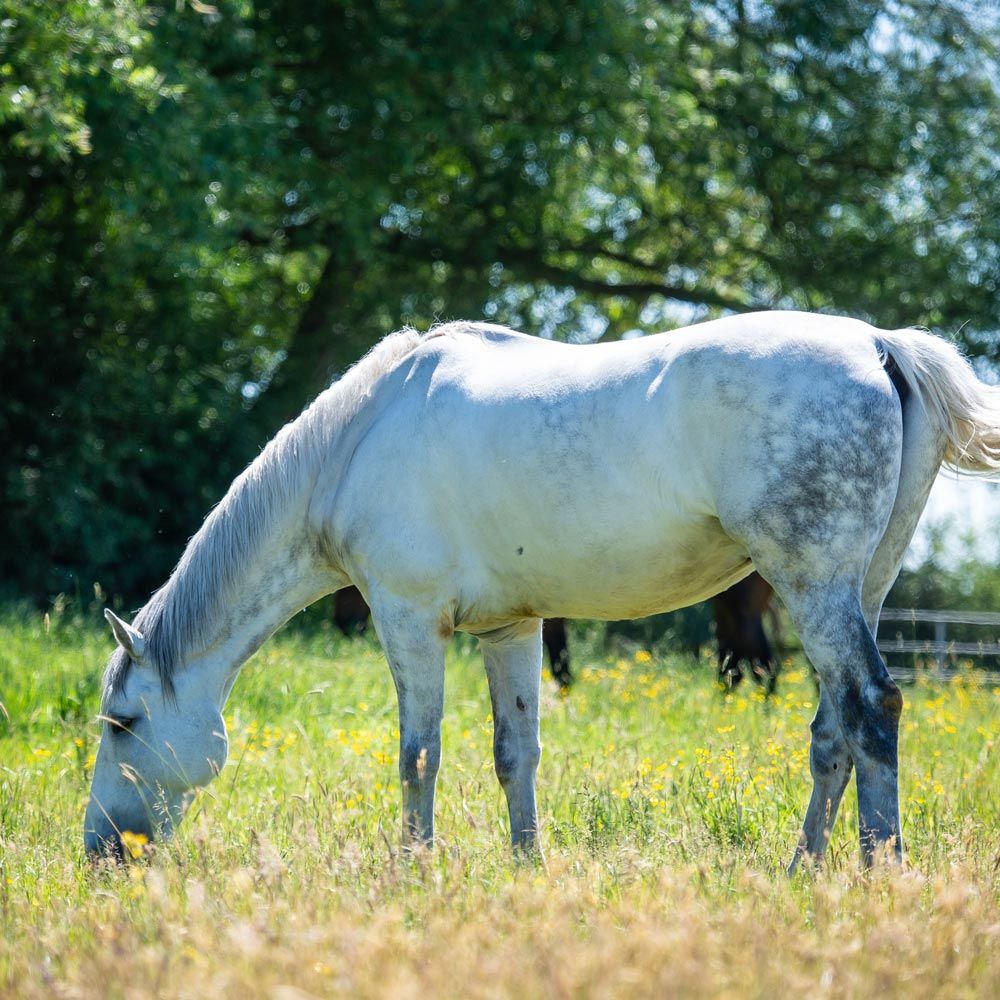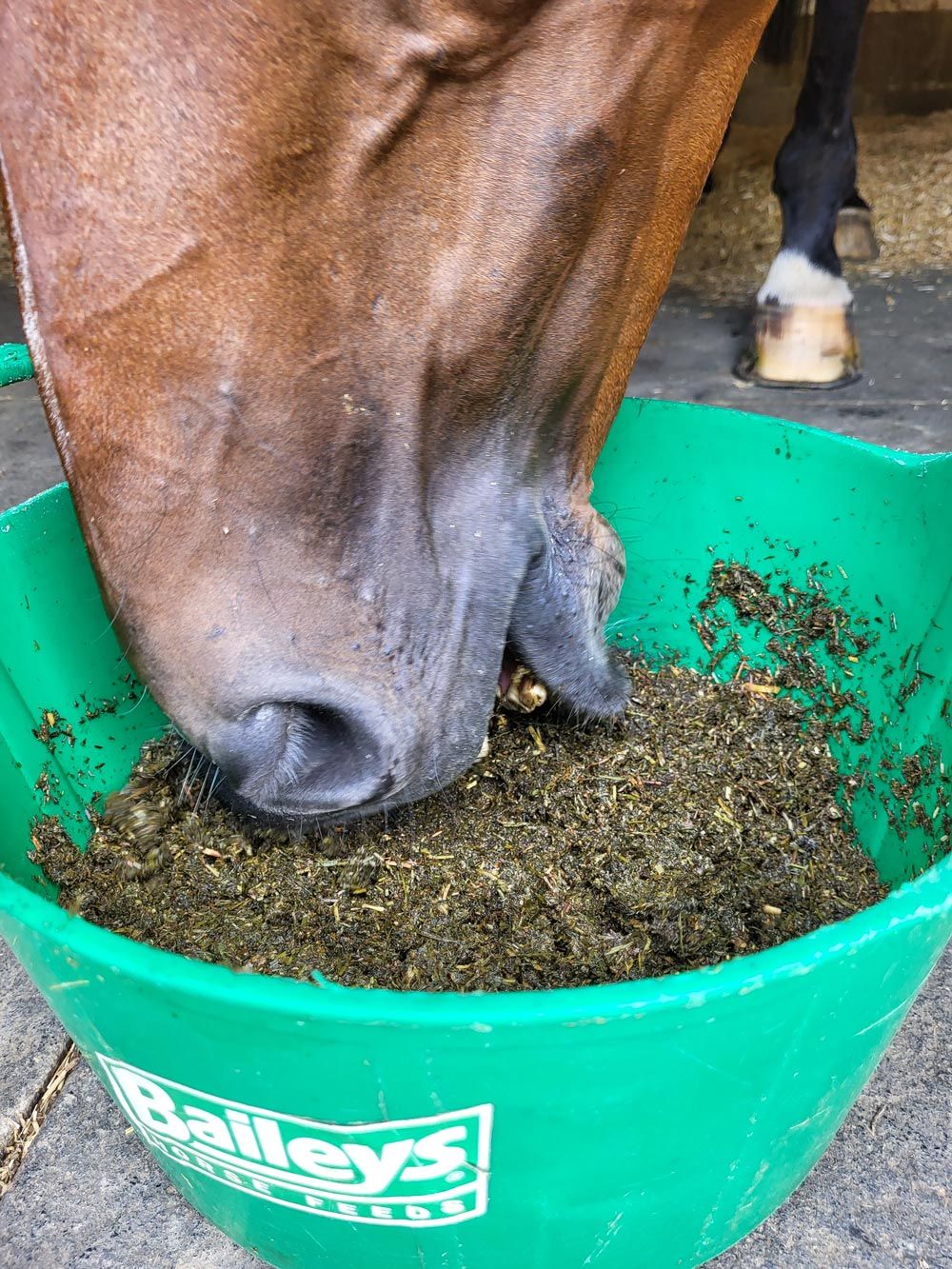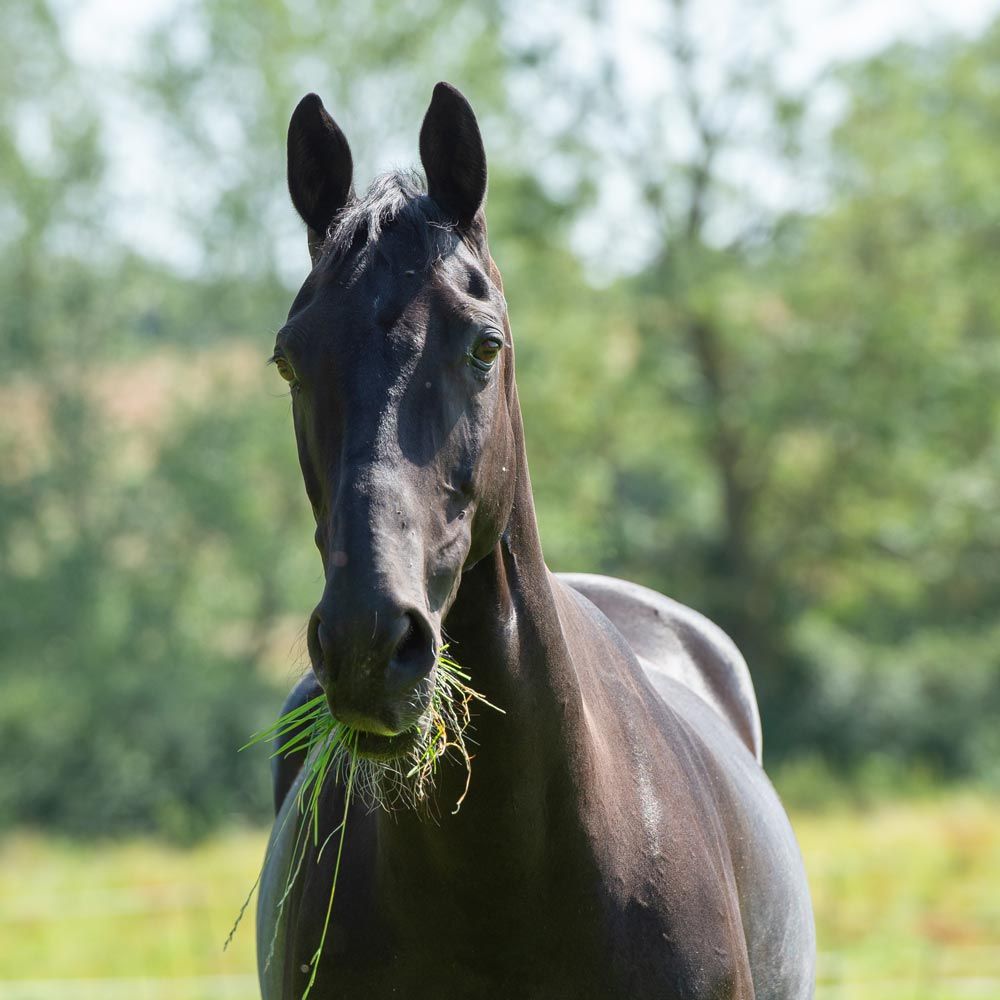
Natural Meadow Cobs - Your Questions Answered

Q. What’s different about Baileys Natural Meadow Cobs, compared to other Pre-Alpine grass/hay cobs?
The grasses in Baileys Natural Meadow Cobs are grown and harvested in the same Pre-Alpine region of Germany as similar products and are taken fresh from the meadows to be coarsely chopped before drying, so the resultant cobs may not be as dense and hard as some others.
Q. What does Pre-Alpine mean?
The Pre-Alps are the foothills of the Alps and extend through France, Switzerland, Italy and Germany. Much of the Bavarian Pre-Alps, in southern Germany, are laid down to permanent natural pasture, comprising up to 60 varieties of grasses, wildflowers and herbs and which is harvested for winter forage.
Q. Do I really have to soak Natural Meadow Cobs before feeding?
We do strongly recommend that you soak them, before feeding, especially if you have a particularly greedy equine! In trials on our own horses we have fed a small number of cobs dry from the hand and a treat ball but we would still strongly recommend soaking them when fed from a bucket. The grass in Natural Meadow Cobs is coarsely chopped and smells deliciously of fresh grass. This aroma is brought out all the better by soaking and the added water helps maintain a horse’s hydration levels too.

Q. Are Natural Meadow Cobs organic?
The perennial meadows from which the grasses, wildflowers and herbs for Natural Meadow Cobs are harvested, may be fertilised but are not treated with herbicides or pesticides.
Q. Natural Meadow Cobs can be fed as a full or partial forage replacer but what does that mean?
A forage replacer is a feedstuff which is nutritionally comparable to forage (hay/haylage/grass) and can be fed to replace all or part of the forage in a horse’s diet. This is particularly useful for horses who have poor dentition and can no longer chew the long fibre in hay, haylage or grass, as well as in instances when forage is of poor nutritional value or a horse is finding it less palatable.
Q. Why are Natural Meadow Cobs so low in calories?
The grasses are left to become quite mature, before harvesting, meaning they have a high proportion of stalky structural fibre, which is great for keeping horses chewing but is less digestible and less nutritious than earlier cut grasses used for hay, haylage, chaffs or pellets.
Q. Can I feed Natural Meadow Cobs to a horse with EMS or prone to laminitis?
Natural Meadow Cobs are low in calories (6MJ/kg) and starch (2.2%) while sugar levels are also low, at 7.8%, so they are ideal for good-doers and suitable for many equines with “special dietary requirements”. We would always recommend that you discuss your horse’s individual needs with our nutrition team when compiling a diet for the laminitis-prone.
Q. Can I feed Natural Meadow Cobs as the main bucket feed?
Natural Meadow Cobs contain no added vitamins and minerals so will not provide a fully balanced diet, if fed as the sole bucket feed. They are ideal as an accompaniment to the recommended daily amount of a balancer, mix or cube, which will supply these essential nutrients at appropriate levels.

Q. My elderly pony has so few teeth, he can’t really graze or eat hay anymore. Do you think he could manage Natural Meadow Cobs?
Natural Meadow Cobs soak down to be easily consumed by horses and ponies who are dentally-challenged and can be fed to replace all the hay, haylage and grass in their diet. Because the grasses contain a high proportion of structural fibres they help provide important physical “bulk”, within the digestive tract, to support the healthy passage of feed through the system, as well as providing valuable fibre to keep hindgut bacteria happy. Check out our article on feeding forage replacers and working out how much to feed, here.
Q. Can I add soaked Natural Meadow Cobs to my normal bucket feed containing chaff and beet?
As they are not fortified with vitamins and minerals, Natural Meadow Cobs can be added to any existing balanced diet without causing any imbalances. They may also be fed instead of chaffs or beet, to mix with your favourite mix, cube or balancer, or fed separately as an addition fibre source, to add variety or to tempt the fussy forage eater.
I’m concerned about the environmental impact of bringing Natural Meadow Cobs to the UK from Germany.
The perennial meadows, where the grasses for Natural Meadow Cobs grow, are prolific and unique to the Pre-Alpine area and the mill, where the cobs are produced, is powered by its own energy plant fuelled by sustainable biomass. What’s more, as Baileys have trading relationships which see our feeds exported to Europe, as well as throughout the world, we are coordinating our logistics to ensure that Natural Meadow Cobs collections coincide with deliveries of other Baileys feeds, to keep “feed miles”, and the Cobs’ environmental impact, to an absolute minimum.


